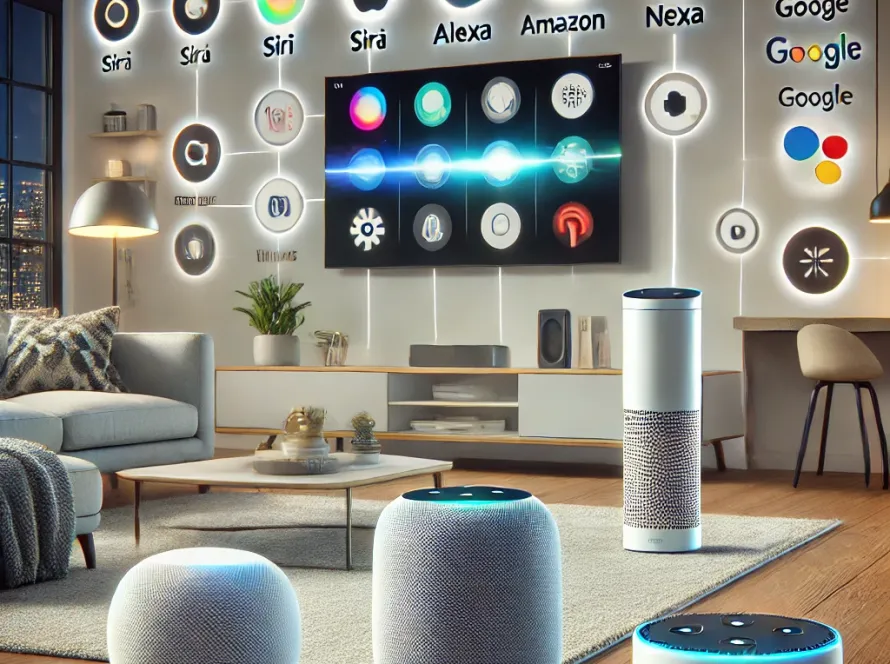Introduction: AI assistants have become an integral part of our daily lives, transforming how we manage tasks, interact with technology, and access information. From setting reminders to controlling smart home devices, AI assistants like Google Assistant, Amazon Alexa, and Apple Siri are making our lives more convenient and efficient. In this article, we explore the various ways AI assistants are transforming daily life and what the future holds for this innovative technology.
Streamlining Daily Tasks: One of the most significant impacts of AI assistants is their ability to streamline daily tasks. With simple voice commands, users can set reminders, create calendar events, send messages, and make calls without lifting a finger.
- Reminders and Alarms: “Hey Siri, set a reminder to pick up groceries at 5 PM.”
- Calendar Management: “Hey Google, add a meeting with John at 2 PM tomorrow.”
- Messaging and Calls: “Alexa, send a text to Sarah.”
Enhancing Productivity: AI assistants help boost productivity by managing to-do lists, providing weather and traffic updates, and even offering personalized news briefings.
- To-Do Lists: “Hey Google, add ‘finish report’ to my to-do list.”
- Weather and Traffic Updates: “Alexa, what’s the weather like today?” or “Siri, how’s the traffic to work?”
- News Briefings: “Hey Google, give me the latest news.”
Smart Home Integration: AI assistants are at the heart of smart home ecosystems, allowing users to control various devices with voice commands. This integration offers convenience and enhances home automation.
- Lighting and Thermostats: “Alexa, turn off the living room lights” or “Hey Google, set the thermostat to 72 degrees.”
- Security Systems: “Siri, arm the security system” or “Alexa, show me the front door camera.”
- Entertainment Systems: “Hey Google, play my favorite playlist on Spotify.”
Personalized Experiences: AI assistants provide personalized experiences by learning users’ preferences and routines. This capability allows them to offer tailored recommendations and reminders.
- Personalized Reminders: “Siri, remind me to take my medication every day at 8 AM.”
- Customized Recommendations: “Alexa, recommend a recipe for dinner” or “Hey Google, what’s a good workout routine for me?”
Accessibility and Assistance: AI assistants are also transforming the lives of people with disabilities by offering hands-free control of devices and access to information, making technology more accessible.
- Voice Control: “Hey Siri, read my latest emails” or “Alexa, set a timer for 10 minutes.”
- Information Access: “Hey Google, what’s the capital of France?” or “Alexa, what’s the date today?”
Future Trends and Developments: The future of AI assistants looks promising, with advancements in natural language processing, machine learning, and integration with more smart devices. We can expect AI assistants to become even more intuitive and capable, further transforming our daily lives.
- Advanced Natural Language Processing: Improved understanding of context and nuances in conversations.
- Deeper Integration: Seamless integration with a broader range of smart devices and services.
- Proactive Assistance: AI assistants anticipating needs and providing proactive suggestions.
Conclusion: AI assistants are revolutionizing how we interact with technology, making daily tasks easier, enhancing productivity, and offering personalized experiences. As technology continues to advance, AI assistants will become even more integral to our lives, providing greater convenience and transforming the way we live and work. Embrace the future with AI assistants and discover how they can enhance your daily life.
Featured Image Description
An image depicting a person interacting with various AI assistants in a modern home setting. The image should show devices like smartphones, smart speakers, and smart home gadgets being controlled by voice commands. Icons or graphics representing different AI assistant functions (e.g., reminders, smart home control, personalized recommendations) can be included to emphasize the theme.


